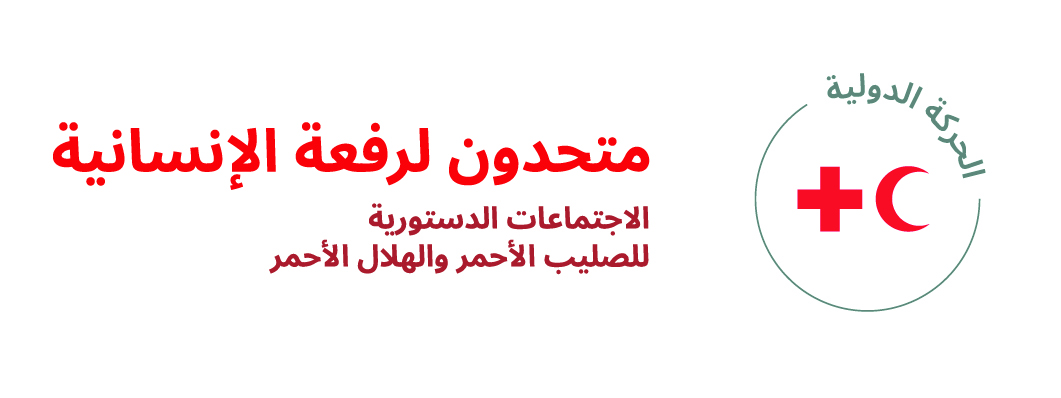هل الدولة/ الجمعية الوطنية/المؤسسة أدرجت الالتزامات الواردة في هذا القرار في الخطط الاستراتيجية أو التشغيلية ذات الصلة؟
نعمأُدرجت الالتزامات في كل مما يلي
السياسات
الخطط التشغيلية
التشريعات (على سبيل المثال، قانون، لوائح تنظيمية، نظام أساسي، نظام داخلي الخ..)
على المستوى الدولي, المستوى الوطني المستو
التفاصيل:
Based on the national legislation and protection plans, the Bulgarian Red Cross participates in the emergency management bodies at national and local level, and is partnering with civil protection authorities, in coordination and disaster response.
On the other hand, the Bulgarian Red Cross closely cooperates with the Ministry of Foreign Affairs MFA, which is in charge of the provision of international humanitarian aid and development assistance. The NS engages with the MFA in discussing provision of international humanitarian aid.
هل الدولة/ الجمعية الوطنية/المؤسسة تعمل مع شركاء آخرين من أجل تنفيذ الالتزامات الواردة في هذا القرار ؟
نعمعملت في شراكة مع:
الحكومة و/أو السلطات العامة
اللجنة الدولية للصليب الأحمر / الاتحاد الدولي
جمعيات وطنية أخرى للصليب الأحمر أو الهلال الأحمر
شركاء في العمل الإنساني والإنمائي (على سبيل المثال، الأمم المتحدة، منظمات غير حكومية الخ..)
جهات أكاديمية
أمثلة على التعاون مع شركاء:
The Bulgarian Red Cross supported the efforts of the civil protection authorities (part of the Ministry of Interior) to organize an interdepartmental task force aiming at improving and speeding up procedures and administration in cases of provision of international humanitarian aid (in-kind).
In the field of domestic disaster prevention and preparedness, together with the civil protection authorities, academia and other partners, the NS implemented a number of activities for disaster preparedness education among the general population.
These included a cross-border project funded by the EU Cross border cooperation program, implemented together with Romanian Red Cross, aiming at educating the population in the cross-border area for response to wild fires and floods. Another tender-based project implemented in the period conducted disaster preparedness training of over 90 000 people, including civil protection trainers, pupils, older people, business and local administration staff, volunteers and media.
In regards to the cross-border relief, in the period 2021-2023 the NS of Austria, Bulgaria Serbia, Croatia, Montenegro, North Macedonia, IFRC, and in partnership with their civil protection authorities implemented the EU funded X-Stock project aiming at enhancing cross-border preparedness through shared management of emergency stock in South East Europe (X-STOCK). Joint virtual warehouse of shared stocks and SOPs for cross-border logistics were developed within the project and improved the coordination and interoperability between state partners and national societies in the provision of rapid and efficient international humanitarian aid.
The conflict in Ukraine brought a very high number of refugees to Bulgaria and led the National Society to expand its services and to pilot new models of assistance, which have become standard over the two years of this complex crisis. The changes included significant increase of cash and vouchers assistance using modern tools, new types of health assistance, adaptation and integration activities for refugees, including education, access to the labor market, childcare and others.
The cooperation of the NS with the Ministry of Foreign Affairs regarding international humanitarian aid has been both bilateral and also as member of the Bulgarian Platform for International Development. The platform is an association of NGOs in which the NS has been one of the founding members. The platform carries out cooperation with the MFA. It promotes the Sustainable Development Goals and works to increase the volume and impact of Bulgaria’s development assistance and humanitarian aid. In the frames of this cooperation the Bulgarian Red Cross participated in the consultations and contributed to the design of the Mid-Term Program for Development and Humanitarian Aid of the Republic of Bulgaria 2020-2024.
هل واجهتم أية تحديات في تنفيذ الالتزامات الواردة في هذا القرار ؟
نعمتحديات بشأن:
الموارد البشرية
تضارب الأولويات
تفاصيل عن هذه التحديات:
Most of the activities reported have been implemented in periods of continued crises response – Covid-19, conflict in Ukraine which have taken tremendous efforts of the National Society to provide effective response, thus overstretching human resources and time for development.
هل كان للالتزامات الواردة في هذا القرار أي آثار على عمل الدولة/ الجمعية الوطنية/المؤسسة وإدارتها؟
نعمنوع التأثير:
تعزّز التعاون بين الحكومة /السلطات العامة والجمعية الوطنية
أُبرمت شراكات مع جهات إنسانية فاعلة أخرى أو تحسّنت الشراكات القائمة
تزايد حشد الموارد
تفاصيل عن هذا التأثير:
Resulting from the cooperation mechanisms developed, and in international emergencies, the Bulgarian Red Cross has been a key partner of the state in the delivery of international humanitarian aid. Often, humanitarian aid is provided to the affected country jointly by the Bulgarian Civil Protection authorities and the Bulgarian Red Cross (often via the UCPM). The latest examples of such collaboration include relief provided via UCPM for Ukraine in 2022 (part of the international relief provided by the Bulgarian Red Cross was delivered via the UCPM together with Bulgarian Civil Protection and another part was delivered directly to the Ukrainian Red Cross Society) and the humanitarian aid provided to Syria and Turkiye after the earthquakes in 2023.
As part of the Neighbours Help First Network and joint commitment of national societies to improve the mechanisms for sending and receiving international humanitarian aid, by involving the state actors (civil protection in particular) in training, exercises and during real emergency response, the cooperation and coordination between different stakeholders have improved and became more efficient.
5- هل كان للالتزامات الواردة في هذا القرار أي آثار على المجتمعات المحلية التي تستفيد من خدمات الدولة/ الجمعية الوطنية/المؤسسة؟
نعموصف هذا التأثير:
Higher number of community members and key stakeholders who passed disaster preparedness trainings.
Larger quantities of more adequate international humanitarian aid delivered in a more efficient manner to the affected areas.



